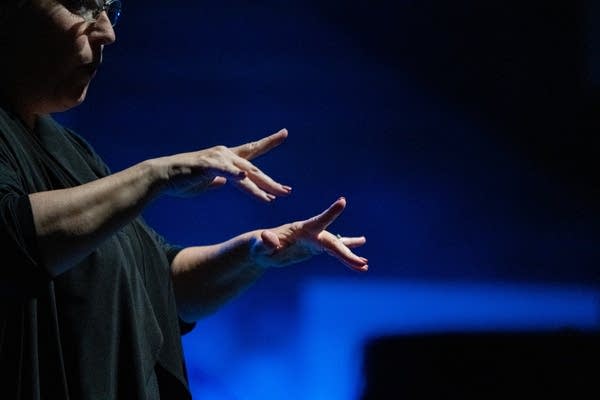Sign language interpreters open State Fair concerts to all

Sign language interpreter Tanya Hoting Mrazek signs the lyrics to Queen songs on stage at the Minnesota State Fair in Falcon Heights on Wednesday.
Evan Frost | MPR News
Go Deeper.
Create an account or log in to save stories.
Like this?
Thanks for liking this story! We have added it to a list of your favorite stories.


